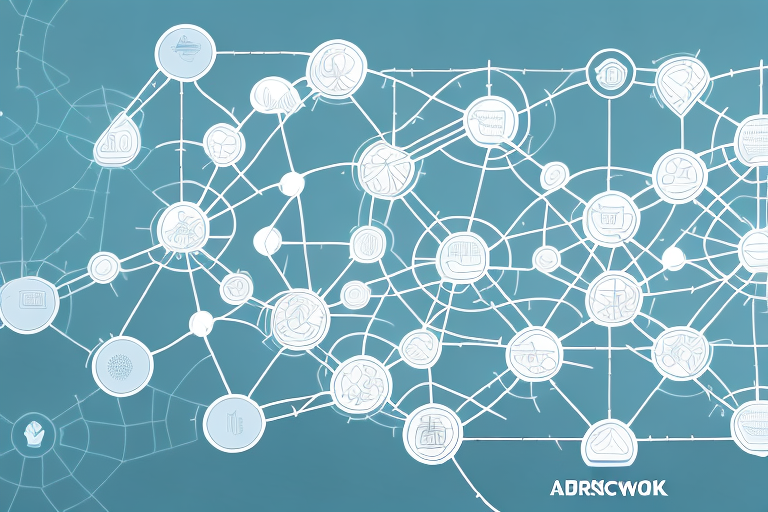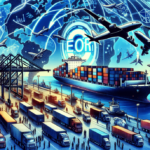Understanding EORI and Its Impact on Supply Chain Management
If you're involved in international trade or supply chain management, you've likely heard of EORI—the Economic Operators Registration and Identification number. EORI is a unique identifier assigned to companies, importers, exporters, and other economic operators engaging in cross-border trade within the European Union (EU). This identifier plays a critical role in facilitating trade by ensuring compliance with customs duties, regulations, and security requirements. In this article, we will explore everything you need to know about EORI and how it impacts supply chain management.
What is EORI and How Does it Work?
An EORI number is a registration and identification system designed to simplify customs procedures for traders in the EU. Issued by individual EU member states, the EORI number is mandatory for all businesses and individuals involved in importing, exporting, or moving goods across EU borders. The system operates within a shared database that tracks the movement of goods and traders, thereby simplifying customs procedures and reducing associated risks.
One of the key benefits of the EORI system is its role in preventing fraud and illegal activities within the supply chain. By assigning a unique EORI number to each trader, authorities can efficiently track the movement of goods and identify any suspicious activities. Additionally, the system ensures that all traders comply with EU customs regulations, maintaining a level playing field for businesses operating in the region. According to the European Commission, the EORI system enhances transparency and efficiency in the EU supply chain.
The Importance of EORI in International Trade
EORI plays a vital role in international trade by ensuring smooth and efficient transactions across EU borders. Without an EORI number, companies or individuals attempting to trade goods within the EU would encounter significant barriers. Customs officials would need to manually process imports and exports, leading to delays in the supply chain and heightened security risks. Moreover, an EORI number is essential for applying for licenses, certificates, and permits necessary for cross-border trade.
Importantly, an EORI number is not only required for companies based within the EU but also for those outside it. Non-EU companies trading with EU member states must obtain an EORI number to identify the trader and track the movement of goods across borders. Failure to obtain an EORI number can result in delays, fines, and even the seizure of goods at customs, as highlighted by ShipScience.
How EORI Affects Customs Clearance
Customs clearance involves inspecting, verifying, and processing documentation of goods being imported or exported at national borders. An EORI number streamlines this process, making it more efficient and less time-consuming. With an EORI number, customs officials can quickly identify the economic operator, goods, and their destination, ensuring that trade complies with regulatory requirements.
Conversely, lacking an EORI number can lead to delays and additional costs. Customs officials may need to manually verify the identity of the economic operator and the goods, resulting in longer processing times and potential errors. Some countries mandate an EORI number for customs clearance, and failure to obtain one can lead to penalties or the rejection of shipments. According to ShipScience, efficient customs clearance is critical for maintaining a resilient supply chain.
The Role of EORI in Supply Chain Security
EORI is instrumental in enhancing supply chain security and risk management. It allows authorities to monitor the movement of goods within the EU, ensuring their legitimacy and preventing illegal trade, smuggling, and the circulation of counterfeit goods. An EORI number also ensures that any security breaches in the supply chain can be traced back to the responsible economic operator.
Additionally, EORI facilitates cooperation between customs authorities and other law enforcement agencies by sharing information on the movement of goods. This collaboration helps identify potential security threats and take appropriate preventive measures, safeguarding both the economic operators and the general public from the adverse effects of illegal trade.
Challenges Faced When Applying for an EORI Number
Obtaining an EORI number is essential but can be challenging, especially for small and medium-sized businesses. The application process requires extensive paperwork and detailed information about the economic operator and the legal entity. Processing times can span several weeks, and any incorrect or incomplete information may lead to delays or denial of the application.
Language barriers also pose a significant challenge, as applications must be submitted in the official language of the country where the application is made. This can be problematic for businesses lacking fluent speakers or resources to hire translators.
Moreover, unfamiliarity with the regulations and requirements of the issuing country can result in mistakes during the application process. Businesses must thoroughly research and understand these regulations to avoid potential issues, as emphasized by ShipScience.
Benefits of Having an EORI Number for Your Business
Despite the challenges, obtaining an EORI number offers numerous benefits for businesses. It ensures that cross-border trade complies with regulations, mitigating the risk of fines or legal actions. Additionally, it streamlines the customs clearance process, reducing delays and minimizing disruptions in the supply chain.
Having an EORI number is also crucial for businesses aiming to expand internationally, as it enhances their competitiveness in the global market. By facilitating smoother transactions and compliance, an EORI number can open doors to new markets and opportunities.
How to Apply for an EORI Number: Step-by-Step Guide
Applying for an EORI number can be straightforward if you follow these steps:
- Verify your need for an EORI number by consulting the customs authority in your country of registration.
- Visit the official customs website of your country and locate the EORI application form.
- Complete the application form with accurate business details and provide any required supporting documentation.
- Submit the completed application form to the relevant customs authorities.
- Await confirmation of your EORI number, which typically takes a few weeks.
Common Mistakes to Avoid When Applying for an EORI Number
When applying for an EORI number, it's essential to avoid common pitfalls:
- Providing inaccurate or outdated information, which can delay or deny your application.
- Omitting required supporting documents, leading to incomplete applications.
- Submitting applications in an incorrect or non-official language.
- Failing to double-check the application for errors before submission.
Ensuring precision and completeness in your application can significantly improve the likelihood of a smooth approval process.
EORI vs. VAT: Understanding the Difference and Their Impact on Your Business
EORI and VAT (Value Added Tax) are both critical components of international trade and supply chain management, but they serve different purposes. An EORI number identifies economic operators involved in cross-border trade within the EU, facilitating customs procedures and compliance. In contrast, VAT is a tax levied on the value added at each stage of the supply chain, affecting pricing and profitability.
Understanding the distinctions between EORI and VAT is crucial for businesses engaged in cross-border trade to ensure regulatory compliance and optimize their financial strategies. Mismanagement of either can lead to fines, legal issues, or financial losses.
Best Practices for Managing Your EORI Number and Compliance Requirements
Effective management of your EORI number and compliance requirements can enhance operational efficiency:
- Keep Your Information Updated: Regularly update your EORI details and promptly inform authorities of any changes in your business structure or supplier information.
- Leverage Technology: Utilize customs management software to streamline customs clearance and accurately track the movement of goods within your supply chain.
- Stay Informed: Keep abreast of regulatory changes and compliance requirements to ensure ongoing adherence and avoid potential legal issues.
The Future of EORI: Trends and Developments to Watch Out For
The landscape of supply chain management is continuously evolving, and EORI is adapting to these changes. Increasing participation in cross-border trade is driving higher demand for EORI numbers and more streamlined customs procedures. Emerging technologies like AI and blockchain are expected to play significant roles in enhancing customs clearance and supply chain security.
Additionally, regulatory changes, such as those stemming from Brexit, introduce new challenges for businesses operating within the EU. Companies must remain agile and adaptable to navigate these changes effectively. According to recent EU reports, the integration of advanced technologies will further simplify EORI-related processes, making international trade more efficient.
Case Studies: Real-life Examples of How Businesses Have Benefited from Having an EORI Number
Real-life case studies illustrate the tangible benefits of having an EORI number:
- Nestlé: The international food giant reduced customs processing time by 90% after obtaining an EORI number, enabling access to new markets and streamlined supply chain operations.
- ASOS: The global clothing retailer secured its EORI number in preparation for Brexit, ensuring compliance with EU regulations and avoiding disruptions to its operations.
These examples demonstrate how EORI numbers can facilitate smoother operations and support business growth in the international market.
Expert Insights: Interviews with Industry Leaders on the Importance of EORI in Supply Chain Management
Industry leaders emphasize the critical role of EORI in supply chain management. They advocate for adopting best practices, staying updated with regulatory changes, and leveraging technology to manage EORI numbers and compliance requirements effectively. Experts also highlight the importance of collaboration between businesses and customs authorities to enhance the efficiency and effectiveness of cross-border trade.
According to a recent interview with a supply chain expert from ShipScience, “EORI is not just a regulatory requirement; it's a foundational element that supports the integrity and security of international trade. Businesses that prioritize EORI compliance are better positioned to navigate the complexities of global supply chains.”
Conclusion
EORI plays a pivotal role in international trade and supply chain management by simplifying customs procedures, ensuring regulatory compliance, and enhancing supply chain security. Despite the challenges in obtaining an EORI number, the benefits for businesses are substantial, including access to new markets and streamlined operations. As international trade continues to evolve, businesses must stay informed about regulatory changes and adopt best practices to manage their EORI numbers and compliance requirements effectively, ensuring sustained growth and competitiveness in the global market.






















